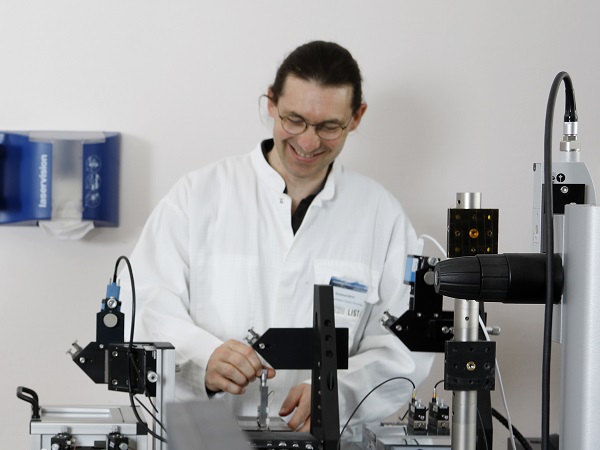 Dr Emmanuel Defay, Head of the Nanotechnologies Unit at LIST;
Credit: LIST
Dr Emmanuel Defay, Head of the Nanotechnologies Unit at LIST;
Credit: LIST
On Tuesday 25 June 2024, the Luxembourg Institute of Science and Technology (LIST) announced that one of its researchers has received an EIC Pathfinder Grant from the European Innovation Council (EIC).
Dr Emmanuel Defay, Head of the Nanotechnologies Unit at LIST, has been awarded an EIC Pathfinder Grant amounting to nearly €2 million. The grant will support the "CoolPol" project, which aims to develop advanced polymer-based cooling technologies.
As LIST explained, the CoolPol project is a continuation of Dr Defay's previous work on electrocaloric cooling, a technology that utilises the electrocaloric effect - where applying a voltage induces a temperature change in the material.
"While earlier research focused on ceramics, CoolPol will explore the superior cooling potential of polymers," said Dr Defay. "Preliminary studies suggest that these polymers have a higher cooling capacity compared to ceramics, offering a lighter and potentially more efficient solution."
With a total budget of almost €2 million, the CoolPol project aspires to achieve a cooling power of 1 kilowatt within its four-year duration. This ambitious target is a significant leap from the current state-of-the-art and positions the project at the forefront of global research in this field, noted LIST. Potential applications of this technology span from household refrigerators and air conditioning units to cooling solutions for electric vehicles and data centres.
The project's consortium, coordinated by LIST, includes key partners such as Arkema, a leading polymer manufacturer, and Kemet, an Italian company specialising in multilayer technology. Together, the consortium aims to create efficient cooling units by layering active materials and electrodes, and plans to use industrial rollto-roll processes to scale production.
"The consortium also includes the University of Stuttgart, who will contribute their expertise in electronic modules to improve the cooling systems' energy efficiency and performance," added Dr Defay.
As reported by LIST, the EIC Pathfinder Grant not only supports the initial research phase but also paves the way for future industrialisation and commercialisation. Following successful project completion, LIST envisions the possibility of forming spin-off companies or partnering with existing enterprises to bring this innovative technology to market.
"The EIC scheme is designed to transform academic ideas into real-world solutions," explained Dr Defay. "We aim to demonstrate the high cooling power of polymers and explore their applications across various industries. This could lead to substantial commercial interest and potential collaborations and drive the commercialisation of our technology forward."
Dr Defay's recent achievements, including a prominent publication in Science, have already attracted attention from venture capitalists, highlighting the commercial potential of his research.
"Securing the EIC Pathfinder Grant is incredibly challenging, so I'm extremely pleased. This recognition affirms the potential of our innovative approach to cooling technology. It also represents a significant step towards developing such technologies that would eventually contribute to global efforts in energy conservation and environmental protection," concluded Dr Defay.









